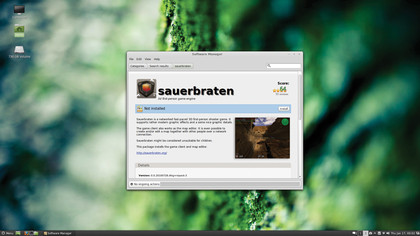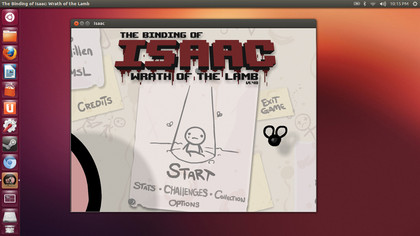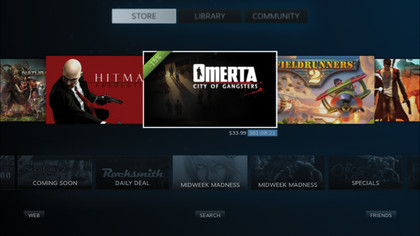Steam on Linux: everything you need to know
Valve (and soon Blizzard, and hopefully THQ) joins the Humble Indie Bundle, which has championed the cause of porting games to Linux. That said, more important than porting individual games is porting gaming engines, and 2012 has seen a lot of action on that front too.
A game engine is the core library that game developers use to define various aspects of the game, such as its graphics, sounds, input methods, networking and other systems. Since there's no game-specific code in a gaming engine, the same engine can be used to develop different titles.

There are lots of open source gaming engines. Some of the popular ones are Panda3D, which is used by various developers including Disney for games such as Pirates of the Caribbean Online and Ghost Pirates of Vooju Island. Then there's ioQuake3, which is an advanced version of the Quake 3 engine and powers games such as Turtle Arena. Another well known engine is Cube, which is used in Cube 2: Sauerbraten and Red Eclipse.
Commercial opportunities

Besides the open source engines, there are lots of highly respectable commercial ones as well. Valve, along with its Steam client, is also porting its Source engine to Linux. The Steam engine isn't just used by Valve games, but also by indie game developers such as the Brighton-based The Chinese Room, which uses it in its awardwinning Dear Esther title.
The developers of Dear Esther have been looking for Ubuntu users to test their game on the distro. Considering that the Source engine is still being ported to Linux, we can rest assured that more developers will follow suit and bring their titles to Linux.
Other developers are also porting their engines to Linux. Developers of the Unity game engine are also gung-ho about Linux. Unity 4 introduced support for Linux, which was previewed by playable demos of two games, AngryBots and Unitroids. Then there's Rochard, which is one of the first games built using the Unity 3D engine that runs on Linux. It was released in the Humble Bundle 6.
Then came Humble Bundle 7, which included the first native Linux game built using the Unreal Engine 3 - Dungeon Defenders. The Unreal Engine, by Epic Games, powers popular titles such as BioShock, Batman: Arkham City and the Mass Effect series.
Sign up for breaking news, reviews, opinion, top tech deals, and more.
There are also reports that Overhaul Games is working to bring Baldur's Gate Enhanced Edition to Linux. The game is powered by the Infinity Enhanced Engine.
Some developers have more ambitious plans. Garage Games open-sourced its Torque 3D engine in September 2012. Since then, there have been almost 300 forks of the codebase, but all for the Windows platform. So the developers have launched a campaign on Indiegogo to crowd-source $30,000 to finance the port. Once ported, developers will be able to write games entirely on Linux using Torque 3D.
Valve has bigger plans for the Linux port of the Steam client. The company has announced plans to use Linux to make a bigger splash in the gaming segment.
The Big Picture

One of the interesting features in the Steam client is the Big Picture mode. This mode is designed for larger displays, such as TVs, and is part of Valve's strategy to use the Steam client in a living-room-friendly console PC of its own.
The idea is that you toggle the mode in your Steam client and then connect a USB controller to the PC and hook it up to your HDTV via HDMI cables. But before Valve can enter the hardware game, it needs a platform it can tweak and customise for its purposes. And we all know there's only one platform that allows such customisation.
In an interview with The Verge, Newell confirmed that its PC package, popularly referred to as a Steambox, will run on Linux. Behind the scenes, the company is also working with Nvidia, AMD and Intel to write better drivers for Linux, and it seems to be paying off. According to the company, Valve's own games are running faster on Linux than on Windows.

With almost two decades of writing and reporting on Linux, Mayank Sharma would like everyone to think he’s TechRadar Pro’s expert on the topic. Of course, he’s just as interested in other computing topics, particularly cybersecurity, cloud, containers, and coding.